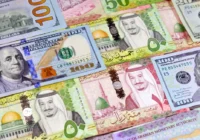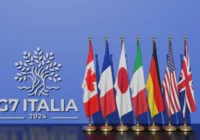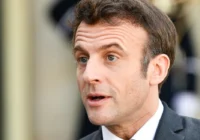In early July, Edward informed us that “the BRICS have allegedly already advanced to practical implementation of an alternative non-dollar financial system based on gold derivatives, smart contracts, permissionless and trustless blockchains.”
He also reported some of what he learned from his conversations with people who attended the recent summit of the Shanghai Cooperation Organization.
“Three key topics were discussed:
– Non-dollar finance
– Military cooperation
– New trade rules
Premier Modi was strategically absent.
Note: It is important to understand that the SCO is seen as a security organization, not quite like NATO yet, but its activities primarily focus on security. Initially centered on establishing border security between China and the republics of the former USSR, its scope has expanded to include trade security, economic security, cyber security, etc. The BRICS is primarily focused on trade, and the SCO – on security; there’s some overlap between the two.
Regarding the first topic – non-dollar finance – several key projects were addressed. Work involved allocating funds, personnel, and other resources to:
- BRICS Bridge: Consensus was reached to proceed with using the ‘BRICS Bridge’ to replace the USD in all military and arms trade among member states.
The BRICS Bridge purportedly utilizes gold-based digital tokens and other derivatives as a medium for transactions involving any combination of currencies, including digital currencies, with a focus on CBDCs. Notably, pilot transactions have already begun for trading energy, commodities, and arms, mostly at the level of single-digit millions.
This system employs highly secure, permissionless, and trustless blockchain technology, likely based on Ethereum (ETH), including smart contracts and various types of mixers to obfuscate transacting entities’ identities for a fee. It’s confusing, but one interesting feature of BRICS bridge is the ability to transact via SWIFT as well. The infrastructure is reportedly developed in Solidity, with engineering conducted concurrently by multiple ‘very agile’ teams across different countries under the coordination of a ‘prominent software and hardware corporation.’
- New Non-dollar Finance Mechanics: A significant discussion revolved around establishing a new risk-free standard to replace T-bills as a risk-free asset. This problem is seen by many as the most difficult to solve. In June, during the recent BRICS meeting of foreign ministers, several technical proposals on the topic were presented to the finance working group.
There was some informational ‘echo’ that one could observe; most notably (I’m quoting from the sources linked):
- July 4, President of Belarus, whose country has just become a full member of the SOC, suggested stepping up practical interaction across the entire complex agenda of the Shanghai Cooperation Organization. He suggested starting with finance.
‘As a priority matter, Belarus sees the creation of a mechanism for bilateral payments using national currencies and the creation of a collective financial institution of the Shanghai Cooperation Organization,’ he stated. The president noted that Shanghai Cooperation Organization countries account for a considerable share of the world’s population and the world’s GDP. ‘Only our organization includes two most powerful leaders – China and the Russian Federation. And we still have this awe for the US dollar. Well, let’s finally take certain steps in order to reduce dependence on the dollars. And you will see how those, who wave around the dollar club, understand that things can no longer continue like that. We see all of it but we don’t take action. While people are waiting,’ the Belarusian leader noted.
- July 3, One of Russia’s key bankers, Andrey Kostin, suggested that all cross-border transaction work be conducted in strict confidentiality:
‘I see very clearly how each of our appearances, especially with such coverage, prompts someone in the US Embassy, perhaps the Second Secretary, to sit and record everything. We’ve observed that regardless of the steps we take, their reaction is very swift,’ noted Mr. Kostin, speaking at the Financial Congress of the Bank of Russia, streamed on the bank’s YouTube channel. ‘Whenever VTB representatives discuss international settlements, a delegation promptly arrives and begins pressuring local authorities about what they shouldn’t do. How many times have I been asked, “What’s happening in China?” Our response has always been, “Everything is fine for us in China.” Then, on June 12, we faced new special sanctions against our bank in Shanghai,’ added the head of VTB.
Note that only one of the two contending presidential candidates in the US takes notice of what’s going on. Former president of the United States, Donald Trump on All In podcast:
‘We are losing a lot of countries on the dollar. I mean they’re going like flies. If we ever lose that, that’s the equivalent of losing a war. That would really make us third-world. We have lost so many countries, I looked the other day. So Russia is gone. You take a look: Ukraine doesn’t sort of exist in a sense, nobody knows what’s going on there, but when you look at China, it’s essentially gone, they’re trying to get out of it, they’re our primary competitor. Iran is not there. The other day I read that Saudi Arabia is willing to now go in various different currencies instead of the dollar. This is a tragedy, this is a big thing that is happening against our country and we cannot let that happen.’”
Some days later I shared with our group of friends a link that had come to my attention and that I thought further clarified the meaning of the BRICS initiatives. It contains the reflections of precious metal broker Andy Schectman. He offers his take on:
· the changing status of gold,
· mBridge, a multi-central bank digital currency (CBDC) platform and potential rival to SWIFT,
· Digital CBDCs
· and the imminent emergence of the “Unit,” described as the future BRICS currency.
I then made the following comment and asked three questions.
“All I know about Schectman is that he’s CEO & president of Miles Franklin Precious Metal Investments, which could explain his bias in favor of gold or his higher than normal expectations for its future role. But his explanation of the mechanics of a carefully crafted new global payments system designed to be backed by 40% gold and 60% commodities in the framework of BRICS and the BIS sounds credible.
So here are three basic questions:
- How solid is the logic concerning the repatriation of gold and what appears to be a concerted effort to craft this into an effective international system?
- How much of this is simply ‘good intentions,’ unlikely to see the light of day?
- Assuming that there will be resistance from the US side, what form might that resistance take and how effective is it likely to be?”
Alex responded quickly with his response to the first two questions.
“A lot of self-declared ‘gold’ experts just play on people’s fears only to sell them some ‘gold savings account’ or ‘gold-backed credit card,’ a scheme in which you buy gold through them, have them store it at a presumably safe (from US confiscation) location. Usually, they won’t buy any gold and just take your money until the Ponzi scheme collapses.
But let’s assume these guys have no nefarious intentions and analyze their claims.
Repatriation of gold: During the cold war, Germany, France, the Dutch and other Western nations had some of their gold stored in London and New York to prevent confiscation in case the Russians should invade Western Europe. Germany and the Netherlands repatriated a good portion of their gold held in London and New York during 2014-2016:
The NY Fed does not report who withdraws gold; we only know about it if reported by the countries holding / repatriating said gold.
The latest data point is from May 2024. The last withdrawal happened in August 2021 (4 tonnes). During 2023, a total of 130 tonnes have been added by an unknown country (could be Turkey, who we know stored gold with NY Fed before, or other US-friendly Arab or Asian countries).
From the NY Fed data we cannot substantiate the claim of countries repatriating gold ‘en masse’ (unless NY Fed makes the numbers up).
For London, the most important trading place for physical gold, the LBMA (London Bullion Market Association) publishes monthly data of precious metals ‘held in London vaults’ (which is a bit vague):
We can observe a modest decline from 9,700 tonnes in August 2021 to 8,600 tonnes in June 2024. The UK has no gold mines; hence any gold additions must be imported.
The Indian repatriation of 100 tonnes is confirmed by media reports that ‘the Reserve Bank of India held 822.10 tons of gold at March-end, of which 408.31 tons were held domestically.’
The break-down between gold held locally and abroad is now almost 50:50 (408 + 414 tonnes), meaning the ratio was previously more tilted towards gold held abroad (308 + 514).
For a gold-loving nation like India 822 tonnes is not a lot; especially per-capita. The German Bundesbank holds 3,355 tonnes or 1.27 ounces per capita compared to 0.02 ounces per capita in India (63 times less).
Now, central bank gold ownership is often dwarfed by private ownership. For example, German private individuals are estimated to hold 11,000 tonnes (4.2 ounces per capita) while Indian private ownership is estimated at 25,000-27,000 tonnes (0.58 ounces per capita).
Increased Indian household wealth is likely to increase the amount of gold held per capita. Gold demand, and therefore gold imports, is already so strong it often creates a problem for the Indian current account balance (gold imports mean dollars leaving the country). Indian governments regularly try to discourage imports by tariffs, which leads to gold smuggling.
The South-African repatriation seems to be more a case of selling the table silver for lack of other funds: https://www.bloomberg.com/news/articles/2024-02-21/south-africa-goes-for-gold-taps-reserves-to-curb-runaway-debt
Saudi Arabia (323 tonnes) and Egypt (126 tonnes) are the only countries mentioned with noteworthy gold holdings. Nigeria (21 tonnes) and Ghana (8) have little, while Cameroon and Senegal have no reported gold holdings according to the World Gold Council. The news of Saudi gold repatriation is based on an anonymous source.
I am not denying that gold repatriation is happening; I am just not impressed with the amounts reported.
However, significant movement of gold can be observed via Switzerland, home of three of the worlds’ largest gold refineries. Over the past decade, around 15,000 tonnes of gold have been exported to predominantly Asian countries, while most of the (grade-adjusted) gold has been supplied by the UK, USA and Emirates.
Conclusion: the movement of gold from West to East is nothing new; it has been ongoing for more than a decade. Eventually, western vaults will run empty, probably caused by (or causing) a run on gold.
Yes, China is probably underreporting its gold purchases / holdings (makes sense if you want to ‘catch up’ on Western holdings without upsetting the apple cart, meaning pushing the price of gold up).
Yes, confiscating Russian assets and cutting them off the dollar market was a wake-up call for many non-US aligned countries.
Yes, central banks have been buying a lot of gold recently (see my article on Fair Observer).
But is this enough to declare the ‘end of the dollar?’ I see little alternatives available currently.
Regarding the ‘re-monetization’ of oil and gold:
- Oil is a terrible store of value, since it is a) toxic, b) has high storage costs relative to its value and c) is being consumed.
- Gold is a great store of value, but a terrible means of exchange (in its physical form). Gold may be useful in restoring confidence in a fiat currency after a collapse in trust.
Regarding BRICS currency basket with 40% gold:
Emerging countries with fast growth usually have large trade deficits, and often have little or no gold reserves. Of what value would be a basket of currencies with little or no external value or use be? Surplus countries would be interested only in the gold part, and deficit countries would quickly run out of gold to deliver.”
Edward helps us to understand that a lot of things are going on in the background. Alex sees reasons for not expecting rapid changes.
We will be exploring these two contrasting vantage points in September when we resume the weekly publication of “Money Matters.” The months between now and the end of the year promise to be very interesting from a geopolitical perspective. The BRICS summit in October, which should have the effect of modifying some of our perceptions.
Join the debate
Money Matters…, is dedicated to developing this discussion and involving all interested parties.
We invite all of you who have something to contribute to send us your reflections at dialogue@fairobserver.com. We will integrate your insights into the ongoing debate. We will publish them as articles or as part of the ongoing dialogue.
*[Fair Observer’s “Crucible of Collaboration” is meant to be a space in which multiple voices can be heard, comparing and contrasting their opinions and insights in the interest of deepening and broadening our understanding of complex topics.]
[Lee Thompson-Kolar edited this piece.]
The views expressed in this article are the author’s own and do not necessarily reflect Fair Observer’s editorial policy.
Support Fair Observer
We rely on your support for our independence, diversity and quality.
For more than 10 years, Fair Observer has been free, fair and independent. No billionaire owns us, no advertisers control us. We are a reader-supported nonprofit. Unlike many other publications, we keep our content free for readers regardless of where they live or whether they can afford to pay. We have no paywalls and no ads.
In the post-truth era of fake news, echo chambers and filter bubbles, we publish a plurality of perspectives from around the world. Anyone can publish with us, but everyone goes through a rigorous editorial process. So, you get fact-checked, well-reasoned content instead of noise.
We publish 2,500+ voices from 90+ countries. We also conduct education and training programs
on subjects ranging from digital media and journalism to writing and critical thinking. This
doesn’t come cheap. Servers, editors, trainers and web developers cost
money.
Please consider supporting us on a regular basis as a recurring donor or a
sustaining member.
Will you support FO’s journalism?
We rely on your support for our independence, diversity and quality.







Comment